#...brother does this and marries this and the watchdog does this and rich people are expected to be like this and a family is a nuclear...
Text
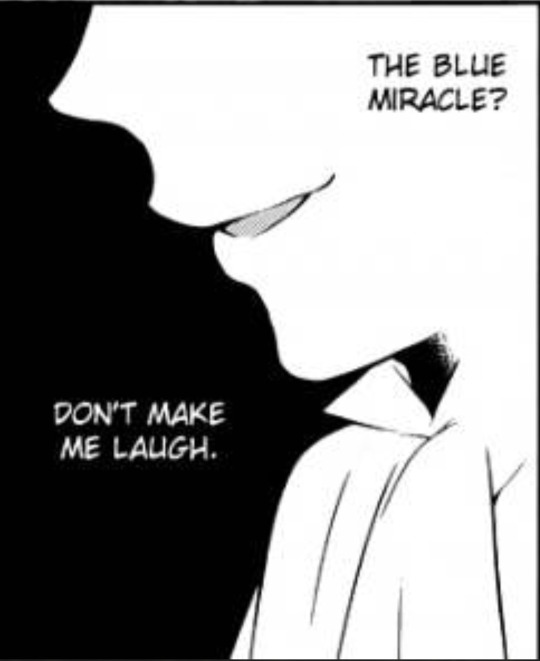
Me when I think my dad is cool and admirable
#the previous earl lost the game lol#like i think if ciel's dad came back from the dead instead of ciel prime that ciel would have the same im the earl reaction#i don't have a reading of this narrative at all that he's trying to be his dad or wants sebastian to be his dad bc number one i think...#...vincent only looks like sebastian bc that's yana's art style and number two it also gets on my nerves the really fandom-y brain to...#...assign found family into actual nuclear family roles. when ciel's whole house now is made up of relationships that are really only...#...defined by how much they all love each other. it's the opposite of what his life was like before where he was stuck in like. an older...#...brother does this and marries this and the watchdog does this and rich people are expected to be like this and a family is a nuclear...#...kind of family unit and that's honestly what caused madam red and ciel and ciel prime a lot of their problems pre fire#now instead the people in ciel's house care about their roles as maid and gardener and chef etc only insofar as playing that role is a...#...way to have freedom for them and it's a way to do things for ciel only bc they love him. not that vincent and rachel completely sucked...#...and didn't love their kids but it was the opposite of ciel's situation now and uh i don't think he wants it back or to recreate it#i think he sees his parents and the midfords as sheep just like of the rest of the rich people he complains about#it's a category 10 albert moriarty situation#he was raised in it so he understands just how destructive these expectations are madam red had the exact problems with the expectation...#...she should get married and have kids when i don't think she particularly wanted that to the point she had to convince herself she did...#...even though it felt unnatural to her and i think that's why she was so attached to the idea of vincent but anyway comphet madam red...#...different post i have already made somewhere probably#it's the same deal for ciel i think he thinks the way the rich people govern their lives is stupid and sebastian has both spoiled him and...#...made him feel like he's above all that and honestly that mindset genuinely informs a lot of this arc and the sheep motif#kuroshitsuji#my kuro posts#ciel
10 notes
·
View notes
Note
I enjoy your theory and I see the connections you've made. To R!Ciel it would be more about power and control, over his brother. He doesn't fancy the idea of him becoming a man of his own right someday at all, he wants complete access at all times and to know exactly where he is. Ironic, but almost like to R!Ciel, his brother is his favorite toy. I still have a question, that's bothering me though? You don't need to answer this because I have a feeling what you'll suggest but. Who do you think might have began to "help him" achieve his goals only to betray him in such a violent way?
Power and control, yes. You get it. This is a long reply...
I believe the Queen / John Brown were the ones who were looking for any excuses at all, to launch an attack on the Phantomhives because for one, they like to do it to test them, the ones that do test them seem to enjoy it. The Queen and her servants just came full-throttle the moment they thought, oh wait! This is actually a deep betrayal worth taking them all out in fell swoop, actually!
Let us not forget what we learned, in the Book of Murder Arc. Even when the Queen was allegedly, on good terms with O!Ciel... Just for being mildly displeased with him, and how he handled the Circus Arc. That apparently warranted...
Grey (and Phipps, but mostly Grey) introducing themselves by violently breaking into the Manor, and immediately engaged Mey and Bard into a fight. A fight that was serious enough to draw blood, involved lethal weapons, and was able to do serious damage to both Bard and Mey, before Sebastian had to intervene and stop it (with a CREAM puff? No less).
They did this, just to test the security of the Manor.
Grey, eventually as we all remember, tried full-on murder Sebastian.
So, why ... wouldn't any of the Queen's servants subject Vincent, to the same kind of treatments, when he became the Watchdog? If I recall correctly, he was also pretty young when he took on responsibility?
I'm sure they did. I'm sure he was constantly being tested.
Vincent was confident about his own security, I don't doubt that part. While he knew it was possible, that he wouldn't live a long life and something could happen to him (He said as much to Dietrich, and it's also not-out-of-the-question considering his Mothers life ended earlier than most) ... I don't think he saw "that day" coming, not in the way that it did, obviously.
Therefore I don't put it outside the realm of possibilities that Vincent couldn't have possibly predicted, something like that happening at all. That perhaps love, clouded any hope or prayer of Real Ciel's motivations being noticed, that it was dismissed as nothing but mischief.
If someone hated Vincent enough to manipulate his own son, to get his child involved in such a dark and terrifying matters. Who.
Well... I imagine a lot of people hate Vincent for his position and he had a lot of enemies. But it had to be someone close, and someone who could make direct correspondence to the Queen.
Vincent dealt with a lot of shady people, some rich and powerful, much like Our!Ciel does... and I imagine, he tried to keep them away from his family as much as possible... but that's a lot easier said, than done.
Especially if there's an ally in your mist that you trust enough to let in that close, but is actually out to betray you.
Look at Madam Red. Our!Ciel didn't see it coming until all other possibilities were eliminated. I'm sure he didn't want it to be her, someone so close and dear to him, but it was. It was.
I'm sincerely sorry that I keep saying this because I understand people don't like it, but it needs to be said that. Alexis Midford is someone who also works for the Queen and outranks the Phantomhive Family in social status.
Alexis was Dietrich's fag, at Weston.
Alexis then married Vincent's sister, and had two children with her.
I imagine Vincent felt he knew everything he possibly could about this man, and could trust him no matter what. He became family.
That ... does give me pause.
"But Alexis loves our!Ciel!" So it would seem.
I've said it once and I'll say it again, I don't take anyone in this manga, at face value.
Even a seemingly happy and upbeat character like Elizabeth, was harboring a huge secret about herself. Did anyone actually predict Grelle's twist? ... I doubt it.
There's always been more to key players in this story, than meets the eye, it's a common running theme.
There's also two other prefects, from Vincent's Weston College days we don't know much about at all and whether or not they had much to do with what happened. (Who the HELL, is Lord Polaris? I'm sure a lot of people want to know.)
There's one prefect shown for Violet House, with concealed eyes ... and the other, from the snooty-upperclass-I'm-rich-and-everyone-loves-me Red House.
I'm not sure I enjoy, the way this nameless Red House Prefect was shown, holding onto Vincent's chair like that, almost with more familiarity than Dietrich in the photograph. Who the hell is he? A relative of Druitt, maybe?
If so. I don't trust Druitt, or anyone in that family. The entire Red House, gives me pause.
Druitt gets dismissed a lot now as comic relief, but let us not be so quick to forget his black market auctions and that he was willing to drug people at his parties... that he was willing to sell a what he thought was a little girl on the black market, and he managed to get away with it ... because he has money.
Come to think of it (this was pointed out by a non-fandom blog, but they don't want to be tagged and I will respect it) What the fuck, WAS Lizzie doing, unoccupied at Viscount Druitt's party?
Madame Red didn't seem to know she was there.
Paula was no where to be seen.
Edward was no where to be seen.
Our Ciel didn't know she was there.
Sebastian didn't expect her to be there.
She was a JUMP scare.
Francis likely wouldn't have allowed her to come by herself, to a party like that, thrown by a man with such a reputation -- Madam Red suspected Druitt was sleazy, so clearly, she would have too.
WHO, then, pray tell, did she come to that party with and was happy to take her there?
Someone let her ride in a carriage all the way to Druitt's nasty house of horrors... and seemed confident, she'd be safe.
It's not helping Alexis out.
He's not beating my suspicion, alright?
It could be any number of people, there's a lot of options, but I am staring at him and I don't trust him because at the end of the day... the shoe fits.
The more I think about it, the more I'm convinced he had something to do with it.
(As a side note: I also don't know why people give UT so much crap, for not being able to stop the slaughter, or find the twins... his mental state is shot to hell and his moral compass is a little out of wack with his dolls and how he sees them. But he's strong, and he's motivated by love and we know that, but clearly, the Queen has someone stronger around her, at all times. Our!Ciel can not be, the only person who wants/wanted her dead.
If it was suspected that Undertaker might have tried to intervene, someone would have stopped him before he even got within miles of the Estate. Perhaps, even John Brown himself. This was a well calculated attack, they even tied the DOG up and muzzled it -- someone did that from inside the manor, knowing what would happen.
I am extremely suspicious, that we have yet to see John Brown's eyes... and the way he coddles Victoria with that stupid little puppet.
I also find it interesting that Grey, Phipps, and Brown all have this white hair and pristine white clothing... and the Undertaker also has this same white hair, but in contrast, he seems to have strong distaste for the queen, dresses...like that, and lives like a damn raccoon. Yana said when she draws his hair she tried to make it clear that it's a little unkept and dirty. It may mean nothing... but it is an interesting design choice, and it was also interesting narratively that up until the Campania Arc, we didn't see Undertaker's eyes. I think Yana did that on purpose, to make us realize, heyyyy, eyes are important! There's another character who's eyes we haven't seen yet! . . . why is that?)
14 notes
·
View notes
Photo
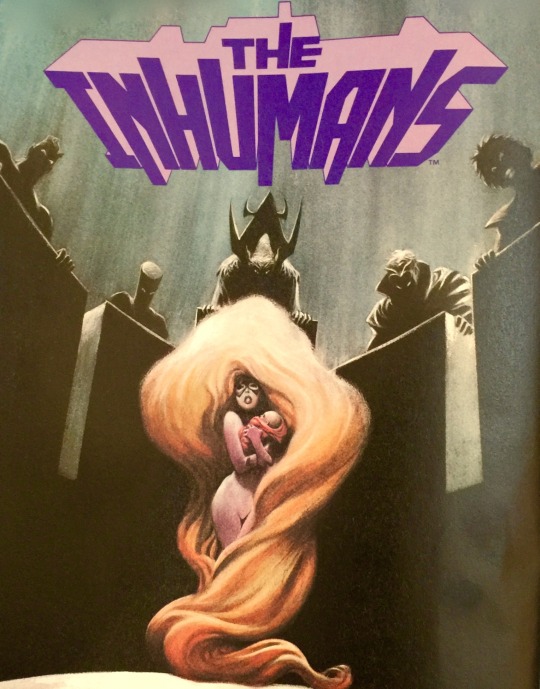
Throwback Thursday!
The Inhumans: By Right of Birth Review
The Inhumans: By Right of Birth is a Marvel graphic novel written by Ann Nocenti and Lou Mougin, illustrated by Bret Blevins and Richard Howell; inks by Al Williamson and Vince Colette, and colors by Michael Higgins and Richard Howell. In was first published in 1988 and then reprinted in 2013. It’s still in print and available at most comic stores as well as amazon.com.
Full recap and review following the jump...
For those of you relatively new to The Inhumans, the characters encountered in the tale may seem quite different to those who currently populate the contemporary Marvel Universe. Yet the general feel is very much there. It’s as an essential Inhumans tale as I can think of; and was actually the first Inhumans book I’d read as well as the comic that forever hooked me on these wild and bizarre heroes.
The story takes place shortly after The Inhumans had relocated their home of Attilan from the Himalayan Mountains to the blue area of the moon. Generations of living in seclusion had left the Inhuman peoples especially vulnerable to the increasing levels of pollution in earth’s atmosphere, a result of the industrialization of the human world. With the assistance of Reed Richards and the Fantastic Four, the entire city of Attilan was transported to the oxygen rich blue area of the moon.
Having relocated to the moon, the Inhuman of Attilan enjoyed an unprecedented period of peace and security. They were no longer living in constant fear of being discovered and invaded upon by the human world. In as such, the populace of Attilan no longer felt as reliant on the Inhuman Royal Family so to offer protection. And this allowed the Genetic Council to garner a much more significant sway over the governance of Attilan.
The Genetic Council were the keepers of culture and ritual on Attilan. They controlled the rights of Terrigenesis and enforced a strict policy of eugenics, shaping bloodlines and arranging marriages all in an effort to control Terrigenesis and produce Inhumans who would receive fortunate gifts from the mutagenic properties of the Terrigen Mists. Their control over the Inhumans of Attilan was total and many felt constrained by the inflexible confines of their culture. Indeed the beginning of the tale introduces us to an Inhuman youth named Tally who commits suicide because she is so distraught over being forced to marry a fellow Inhuman whom she did not love.
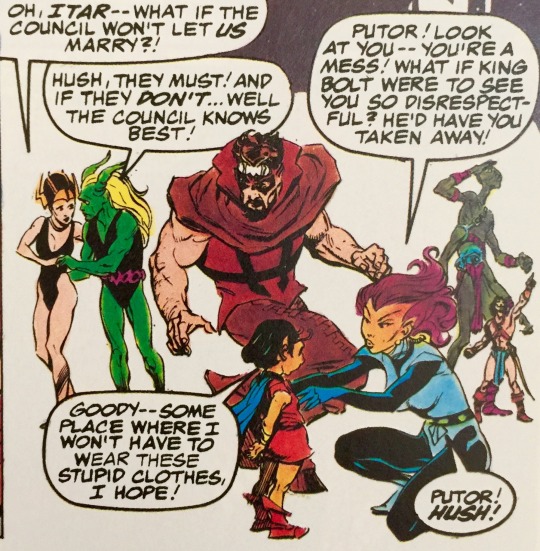
This sense of conflict on Attilan extends to the Royal Family as well. Karnak argues that the rules the Genetic Council is strangling Attilan with its staunch rules and unflinching demands. He feels that Attilan must progress beyond the old ways less they all degenerate into inbred, witless drones of culture and tradition. Gorgon disagrees with Karnak; he demands that the Council is wise, that they have guided the Inhuman peoples well. The dueling views of Karnak and Gorgon represents the growing divide on Attilan, the schism between those who adhere unwaveringly to the idioms of Attilan’s culture and those who wish to be free of the old ways.

The narrative switches to Queen Medusa, tentative to share some very special news with her husband, Black Bolt. Akin to Karnak, Medusa also feels conflicted over the stringent traditions of Attilan. She has spent time in the human world as a member of the Fantastic Four and a part of her still longs for the adventure and freedom of her life before she became a wife and queen. Yet she has more important matters on her mind… She recently discovered she is pregnant with Black Bolt’s child.
Black Bolt is initially surprised, even shocked by this revelation, but the initial trepidation quickly gives way to joy on the part of the silent king over the prospect that he and his wife will soon have a child. Blevins and Howell do a wonderful job depicting Black Bolt’s reactions. He is unable to speak and hence everything must be relayed by way of body-language and facial expressions. The artists do fantastic work with it… there’s one panel in particular where the mixed feelings of happiness and anxiety is so evident on Black Bolt’s face. It’s quite well done.

The next day, The Royal Family presides over a meeting in which the council are called to answer for as rash of suicides among the younger generation of Inhumans. Medusa steps forward and speaks for her husband, relaying his words as though they were her own. She talks about how the customs of Attilan has acted to make the Inhuman people strong and resilient… how it has helped them rise up from the servant race the Kree had created them to be and carve out their own destiny.
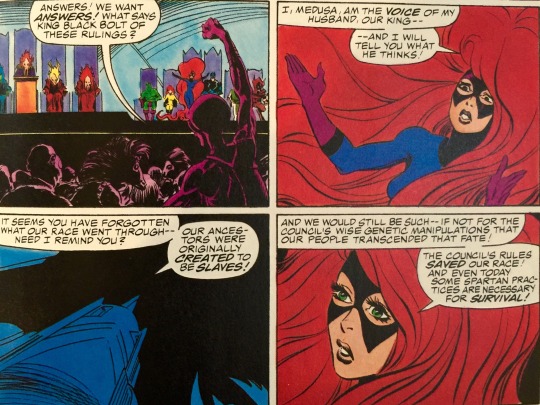
To further appease the crowd, Medusa announces to the court her news that their king is soon to have an heir. The court is overjoyed by this news. The prospect of a royal birth seems to quell their angry feelings and reinvigorate their appreciation of the pomp and circumstance of tradition and the monarchy.
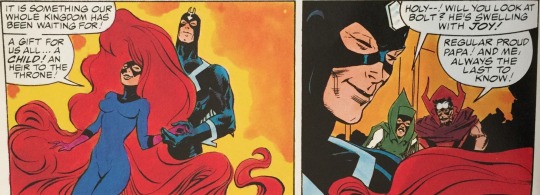
The genetic council, meanwhile, do not share in this celebration. The council themselves are depicted as doddering old men, feeble and ineffectual. Their leader, however, The High Chancellor, is shown as sharp, cruel and stern. He is unwavering in his adherence to the customs of Attilan as well as ambitious to consolidate power and essentially usurp Black Bolt as the supreme authority over Attilan. He is only identified as The Chancellor throughout the story, but is later given the name Kitang in subsequent appearances. Kiting seizes on Medusa’s announcement as an opportunity to further cement his power.
Chancellor Kitang states that Medusa’s pregnancy cannot be allowed to come to term. There is far too much risk. The destructive nature of Black Bolt’s power, coupled with the madness of his brother, Maximus, could lead the child of Black Bolt to be too great a threat to the safety and wellbeing of Attilan. Kiting decrees that Medusa’s pregnancy be terminated.

It’s a shocking turn of events. Medusa is horrified and turns to her husband for help. And she is left even more aghast by the look of indecision in Black Bolt’s eyes. He is torn… as much as he loves his wife and desperately wants the child, his duty above all else is to the people of Attilan and Kitang’s ghastly command is not entirely without merit. Heartbroken and enraged, Medusa refuses the orders of the council. She declares that if she is not allowed to bare her child on Attilan then she will flee to earth!

Elsewhere, in the bowls of the city, Maximus the Mad has been left to rot in his prison cell. Word of the scandal that had occurred in the royal court reaches his prison guards and Maximus decides that it has made for an appropriate time to escape. He picks the lock of his cell and then uses his mental powers to force the guards to tear each other to shreds.
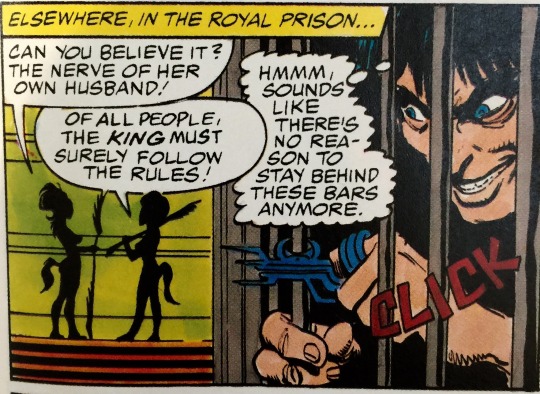
Meanwhile, Medusa’s sister, Crystal, and her husband, Quicksilver, discuss all that has transpired. Medusa has left her husband and fled to earth accompanied only by her handmaiden and doula, Minxi. Quicksilver voices disapproval toward Medusa, calling her selfish for forcing her husband to choose between her and his duties as a king. Crystal is incensed by the remark. The two had only just had their own child and Crystal knows all too well the anguish her sister is going through.
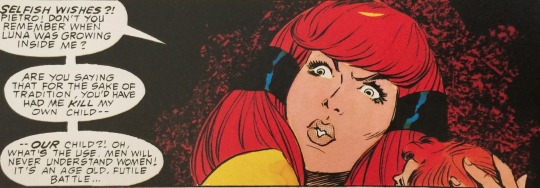
Crystal makes up her mind… she leaves her daughter in their care of the nanny and goes to Lockjaw, the royal watchdog who has the ability to teleport over vast distances and asks of him that he help her and her sister flee to earth. After a short debate, Karnak, Gorgon and Triton agree to accompany Crystal.

Medusa and Minxi have made their way to earth and taken refuge in an abandoned farmhouse in the desert outskirts of Las Vegas Nevada. The baby inside her is growing at a notably fast pace and its jostles and kicks cause her great discomfort. Minxi tries to ease Medusa’s pain, but there is not much she can do. This is Minxi’s first appearance and she’s a rather interesting Inhuman. Her powers enable her to take on the attributes of any animal she comes into contact with. Minxi is in a romantic relationship with Gorgon, but is also pursued by Karnak. It’s possible that Minxi is the mother of Gorgon’s younger child, Petras… for some reason she has only made a handful of appearances outside of this story.
After a brief stopover in the unwelcoming streets of Las Vegas, Lockjaw teleports Crystal and the others to a commune outside of the city where a collection of hippies and burnouts have set up a home away from the hustle and bustle of modern life. The friendly denizens of this commune direct Crystal to the junk yard down the river where her sister is to be found.
Back on Attilan, Maximus is toiling at a means to transport himself to earth. He plans to go to Medusa and somehow make her his… all part of a bent scheme to hurt his hated brother. Maximus babbles on to himself, a manic stream of consciousness in which Maximus ruminates over his hatred toward Black Bolt, the unwanted brother whom he feels stole from him his sanity, his parents, his rightful place as king. The art and writing works wonderfully here in capturing the unhinged energy bubbling out from Maximus. His darting, squinted eyes and contorted grimaces perfectly mirror the twisted passage of his thoughts. It’s a wild, disquieting scene.
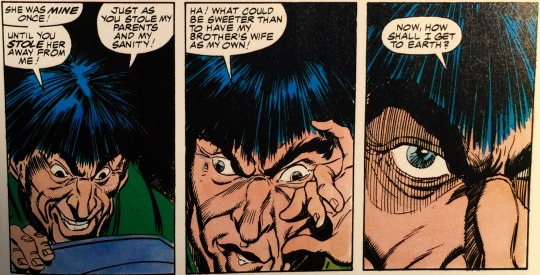
And very neatly paralleled by conjoined scene showing a mournful and stoic Black Bolt sitting silently atop a stalagmite somewhere in the caverns of the moon.

Meanwhile in Nevada, Crystal and other have reunited with Medusa and Minxi. Gorgon does his best to offer solace to Medusa, assuring her that Black Bolt loves her with all his heart. Yet they have more immediate problems to contend with. The polluted atmosphere of earth will ultimately prove fatal to them and surely cannot be healthy for Medusa’s unborn child. Crystal decides to do something about it, claiming that she can use her elemental powers to cleanse the air and soil of pollutants. A lofty undertaking certain not to succeed, but it does provide us a wonderful splash page of Crystal standing atop the home wielding her tremendous elemental powers.

Crystal’s efforts prove temporarily effective and the land around the farmhouse is transformed into a beauteous grove. Karnak is hopeful that the effect will spread, perhaps all of earth might be healed from the ravages of industrialization. Gorgon and Minxi are disconcerted by it all, however, seeming to believe that what Crystal has done will upset the natural order of the planet and bring about costly ruin.
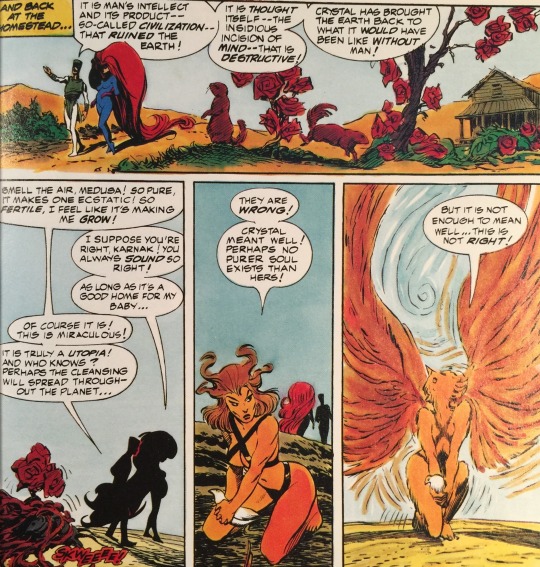
Their instincts are correct. Crystal’s meddling with the environment has stirred to life some unearthly presence, a gnarled personification of nature turned on its head. Water twists with air and sand and burst aflame. Some kind of ‘birth’ has occurred and it can only spell disaster for The Inhumans.
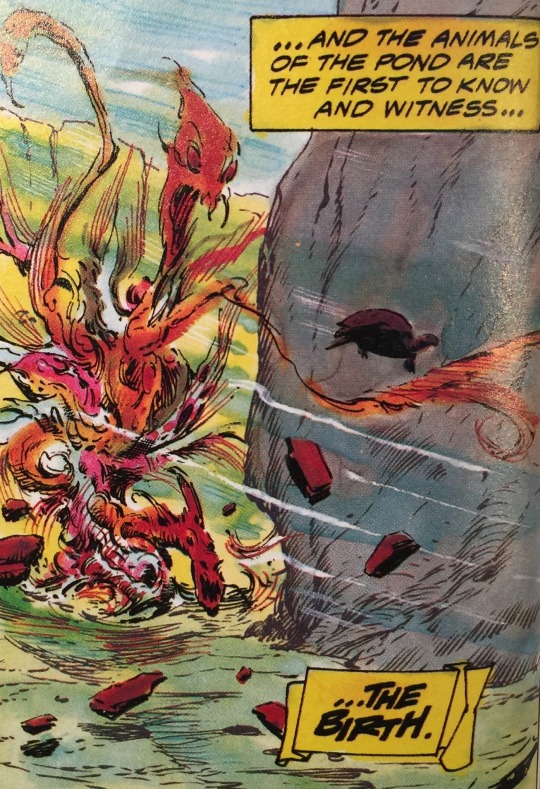
On the moon, Black Bolt continues his solitary vigil. His thoughts turn back to his childhood and the great isolation forced upon him by the awesome responsibilities of his powers. His voice can bring about utter destruction and he must forever remain silent. The repetitive mantra of ‘never speak’ reverberates through his head on a constant loop. In this meditation, Black Bolt’s mind is touched by the psychic consciousness of his unborn son.
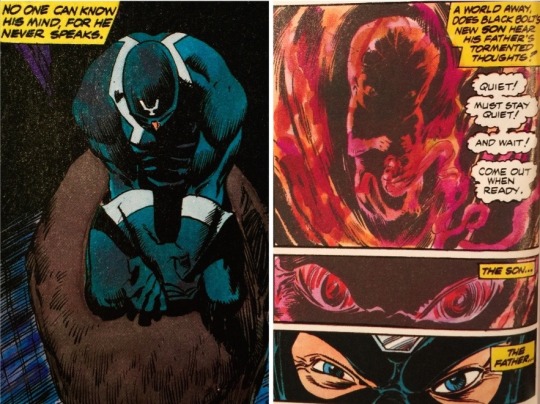
Maximus has made his way to Nevada, using his technological ingenuity to track the others whereabouts. He plans his strategy as he goes along, deciding to use his own madness as a weapon. His revenge against his brother will be to drive Medusa insane.
As the threats of Maximus and the strange creature born from Crystal’s tinkering loom, the narrative offers a series of brief vignettes for each of The Inhuman Royals. Triton harbors at the bottom of a lake, curled up in the fetal position while considering his feelings of alienation and sadness. He yearns for both the company of others as well as solitude and cannot find solace in either. Elsewhere Karnak prattles on his philosophical ramblings, expounding on the follies on both human and Inhuman. His garrulous pontifications all clearly attempt to distract him from his heartache over Minxi. Crystal sits in a bath, ruminating over her guilt over leaving her husband and daughter behind to tend to Medusa. Gorgon, meanwhile, warms himself next to a fire, sharing the drink and company of hobos and call girls. Karnak chastises Gorgon for his hedonistic ways, but Gorgon has had enough of Karnak and his words. He craves simplicity. Girls make him feel good, Karnak’s rhetoric makes him feel bad.

Finally, Medusa wanders about the farmhouse fretting over an uncertain future and all that she has lost. She thinks back to her time as the black sheep of the Royal Family, her former role as a villain in the human world and, most importantly, how Black Bolt forgave her ever transgression and accepted her for who she was. She misses him so desperately and stunned and overjoyed to see him enter the room and call out to her. But it isn’t Black Bolt, it’s Maximus using his mental powers to trick her. He reveals himself and tortures her with harsh words and unwanted advances. Medusa rebuffs him and as a final cruelty Maximus attempts to gaslight her, disappearing into the haze and claiming to be nothing more than a manifestation of Medusa’s guilty consciousness.
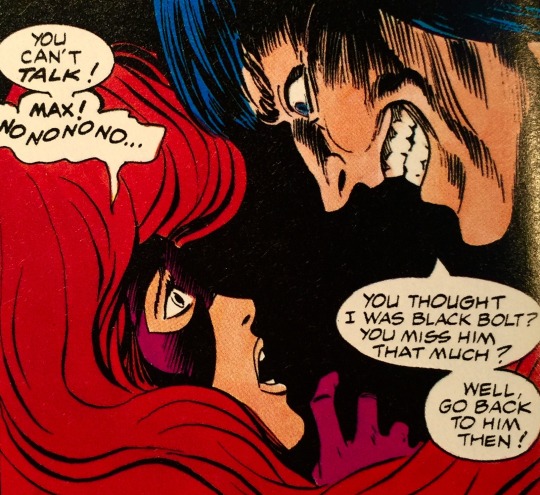
The others return to the farmhouse, yet the quiet they bring with them only lasts for a moment. Unnatural winds hits the house like a gale, evacuating them from, the premises. Night turns suddenly to day and all of nature turns on its head. A grotesque monstrosity of sand and bark, fire, flora and bone rises up before them, towering in an elemental maelstrom. It’s absolute mayhem and with all their powers aside the Inhumans are tossed about by the monster as though they were mere rag dolls.

Somehow Karnak is able to discern the monster’s weakness and he devises a plan of attack, issuing commands to the others. Minxi distracts the monster while Gorgon slams his hoofed foot into its weakest point. Now vulnerable, Crystal is able to use her elemental powers to pull the monster apart and it shatters into countless pieces.
The Inhumans have prevailed but the stress of it all has sent Medusa into labor. The child is coming and the others rush to her aide. They are each terrified that the child will be born with its father’s sonic powers, that its initial cry will destroy them all.
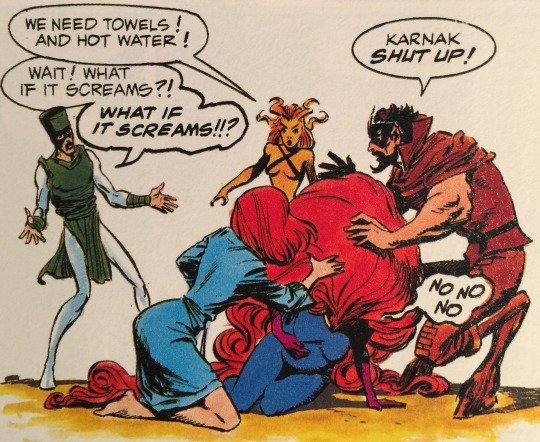
Minxi assists Medusa in the birth. The entire scene is interspersed with events occurring elsewhere showing Maximus flying into a manic, hallucinatory rage and accidentally killing the kindly old man he had befriended. It’s all a truly bizarre intersection of birth, life, murder and death… a jumble of human elements not that different then the composite monstrosity that has attacked the inhumans in the scene beforehand.


Medusa gives birth to a healthy baby boy. He doesn’t stir nor cry. He is merely calm and content and gently goes to sleep. All seems quiet; the danger appears to have passed. Crystal and Karnak surmise that the monster they dispatched must have been some manifestation of imbalance caused by Crystal’s attempts to alter the earth. They are only half correct, for the creature has not been destroyed and it is slowly reflecting itself, preparing to attack again.
It singles out Medusa, attacking her when she is alone with her son. A particularly haunting scene shows the monster taking on the form of animated water, spindling through the air and attempting to drown Medusa in her sleep.

She wakes up, coughing the water from her lungs. She sees the creature before her and at first she assumes it is but a hallucination, a visage of her guilt and sorrow. She soon realizes, however, that the creature and the danger it represents are indeed quite real.
The others are alerted by Medusa’s screams. Whatever weakness the monster once possessed is now gone and the Inhumans are quickly routed by the circling torrent of fire, water and moss. As an added bonus, The Inhumans all fight in their underwear. Medusa runs off with her son, but is struck by a branch, forcing her to lose hold of the baby.
Triton is terribly wounded by a lightning bolt of fire. Lockjaw sees how critically Triton is injured and, not knowing what else to do, teleports them both to Black Bolt on the moon. Black Bolt takes up his cousin in his arms. He must wonder what does this all mean? In any case, the look in his eyes makes it abundantly clear that he knows he must get to earth.
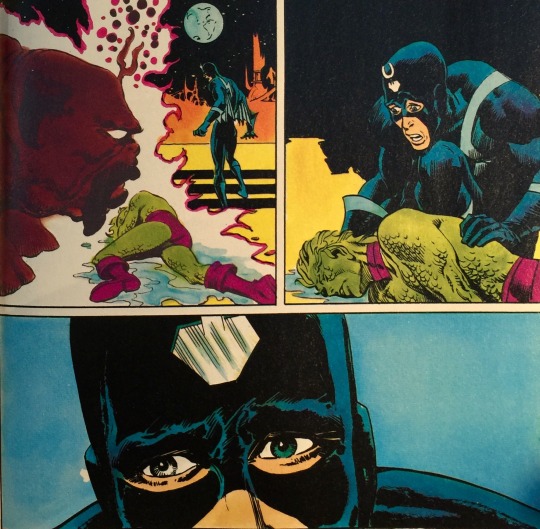
Crystal, Karnak and the others are unable to defeat the creature. His mother knocked unconscious, the baby is left on his own and he crawls toward the beast. The two newborns square off against one another. The monster seems to sense the innocence in the baby whereas the baby sense his own powers. A crackling psychic energy emits from the child’s mind. His first cry focuses this power into a singular blast. An enormous explosion engulfs the creature, tearing it asunder and completing destroying it.
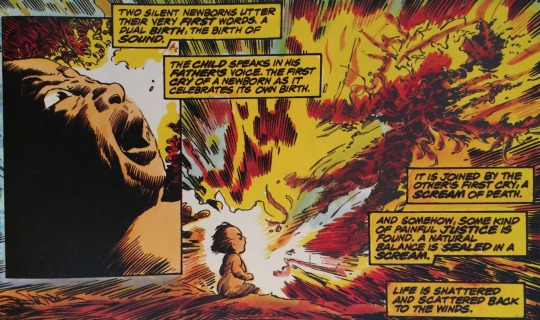
In the aftermath, Medusa wakes up instantly calling for her baby. Crystal comes quickly and hands Medusa her unharmed child. None had seen how the child had destroyed the monster, yet Medusa can see something in her sons eyes and can only suspect the power he may possess.
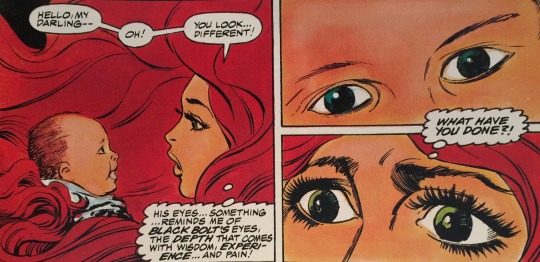
Later, in a final act of malice Maximus returns to bedevil Medusa. He feigns sympathy and compassion, assuring Medusa that the council will certainly see how pure and innocent the baby is and welcome her back to Attilan with open arms. All the while believing that the council will sentence the child to death and, by convincing Medusa to return, Maximus may finally have his vengeance. And with that Maximus again disappears.
Outside, Crystal, Karnak and Gorgon ponder all that has transpired. They are each left feeling quite inhuman. Their efforts to cure the planet resulted in a monstrosity. The plant seems to have rejected them and perhaps it is time for them to leave it and humanity behind. Suddenly, Crystal notices that Lockjaw has returned from the moon. They each know that Black Bolt has finally found them.
Back in the farmhouse, Black Bolt approaches his wife and newborn son. The meditation Black Bolt had subjected himself has cleared his mind and set straight his priorities. He embraces his wife and then takes his son up in his arms. The pure joy and pride on his face is unmistakable and Medusa dares to hope that she and her husband may once again know happiness.

They all return to Attilan on the moon. There, the child of Medusa and Black Bolt is presented to the Genetic Council. Medusa claims the child is innocent and pure, castigating the council for ovations that such purity needed to be snuffed out. Chancellor Kitang is unmoved. One life against the traditions, history, and safety of Attilan… innocent or not, it is but ‘a feather to the mountain.’
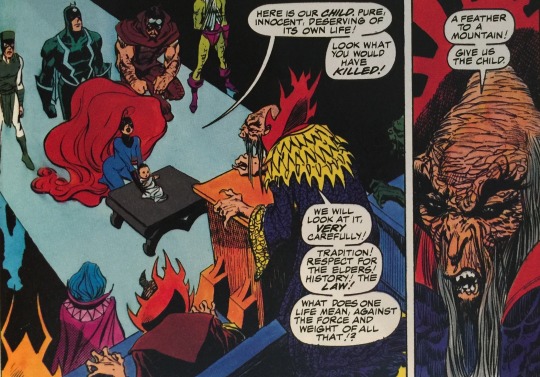
Kitang orders that the baby be taken into the care of the council so that their doctors and scientists may look him over and ensure he poses no threat to Attilan. Black Bolt and Medusa have no choice but to comply.
Karnak contemplates aloud to Quicksilver. The conviction of his condemnation toward the rituals and customs of Attilan has been replaced with uncertainty. In his view the council is rotten, mired in traditions the meanings for which have long since been lost and forgotten. All that remains is the cruelty, but perhaps the meaning and purpose remains nonetheless. Perhaps there is wisdom to it all and there may indeed be reason to fear the son of Black Bolt. Quicksilver waves the matter off as mere morbidness.
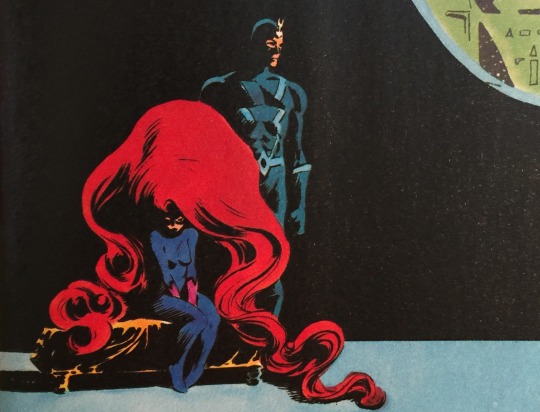
In the end, Medusa and Black Bolt are left to wait in silence, the future of their child and happiness unknown. All the while Maximus cackles in his cell. He had gleefully turned himself in now he too waits patiently. Waits for a nephew who will have his blood and his madness, whom Maximus will use gain his final revenge. He laughs once more, exclaiming how much he loves a happy ending.
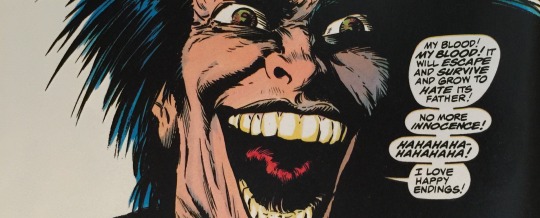
It’s a wild, wild weird read.
The whole tale plays out like some mad Shakespearian fever dream. The dialogue is steeped with near hysterical melodrama and hyperbole. The themes are presented with the subtly of a sledgehammer and the narrative takes itself all too seriously. It’s just nuts… and I love ever single page of it!
It’s impossible for me to truly look at this story without the rose-tinted hue of youthful memory. I was about twelve or so when I first read the graphic novel. It was my first exposure to The inhumans and I was entranced from the get-go. It was like Star Wars and X-Men, Frank Herbert’s Dune and the Lion The Witch and The Wardrobe… all wrapped up into a singular comic with stunning illustrations and weird, wild ideas that just blew my mind.
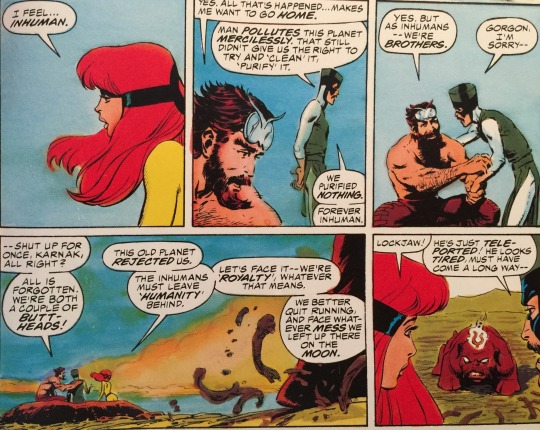
It was also 1992 and I was a kid being raised by two socially minded lawyers. Here in the states, The Supreme Court had just adjudicated the case of Planned Parenthood v. Casey, altering important facets to the original parameters put forth in Roe v. Wade. The country was once again embroiled in a national debate over abortion, right to life, and a woman’s right to choose. All this was a really big deal in my household and, while I agreed with my parents and admired their passion, my 12-year-old brain couldn’t quite grasp the entire scope of the matter.
Once again, comics came to the rescue…
By my interpretation, By Right of Birth is very much a pro-choice story. It turns the matter a bit on its head by framing the villains as advocating for a pregnancy to be aborted and the hero as fighting for the right of her unborn child, and yet, at its heart, it is about a woman’s unmitigated right to make choices about her own body.
A woman’s right of choice, after all, is a bilateral process. To the same extent that a woman has the right to terminate a pregnancy so too does she has the right to take it to term. What is imperative is the right to choose and a governing body has no business in the decisions that women make with their families. And this is ultimately what Medusa and the others are fighting for…
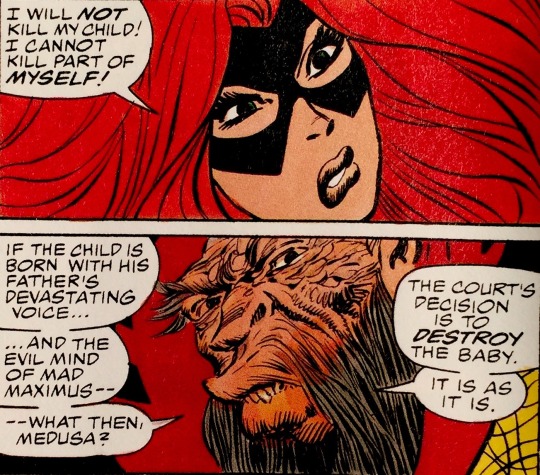
The late 80’s and early 90’s were also times in which the matter of ecological peril was really germinating in the collective consciousness. Many were coming to more fully realize that mankind could have a lasting detrimental effect on the health of the planet. In 1989 the Montreal Protocol on Substances that Deplete the Ozone Layer was ratified and it really hammered home just how serious this problem was.
The looming dread of ecological peril is also a central theme in By Right of Birth; and once again the narrative takes on the matter from an interesting and unusual direction. The monster that was created was a product of Crystal trying to fix the damage done to the environment. It seemed as though Crystal’s efforts for a ‘quick fix’ brought about more harm than good.
It is not by accident that the narrative depicts the elemental monster as being akin to a newborn. It ties into the overarching theme of the potential for destructiveness inherent in our prodigy (whether that prodigy be an actual child or the effects brought about rapid industrialization). It’s similar to Mary Shelly’s Frankenstein. When we play god we gamble with the risk that our creation will end up destroying us.
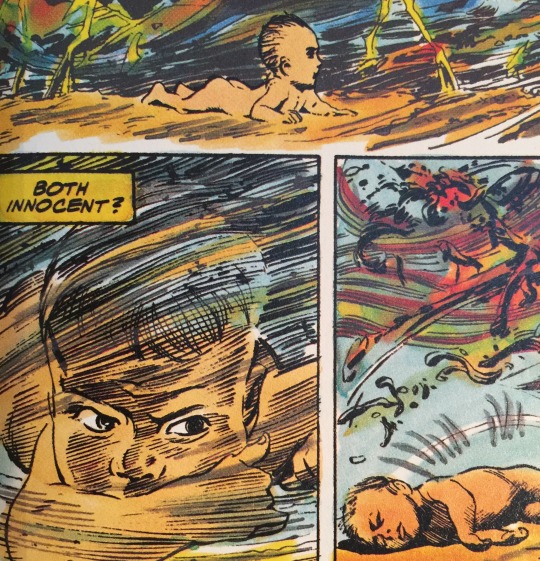
Attilan and the Genetic Council makes this same gamble with their adherence to eugenics and attempts to control the bloodlines of this citizenship. They only obtain the illusion of control… an illusion that helps them push down the crippling fear that their constant tinkering with the Terrigen Mists is very likely to produce an Inhuman who will destroy them all.
Eugenics is a junk science. It’s a neat matter to explore in the confines of science fiction, but will never work in the real world; and all too often it has been embraced by deplorable, racist causes.

And yet modern medicine stands on the precipice of a new type of eugenics with prenatal genetic screening and the prospect of genetically modified babies. Advancements to these ends may succeed in ultimately eradicating terrible diseases like Tay–Sachs or Huntington's chorea, but what if the process is taken further? Will geneticists attempt to target less concrete afflictions like depression, anxiety, or autism? Might this inadvertently rob from the future generations many of the qualities that makes humans human? It’s impossible to say, but nonetheless a terrifying prospect.
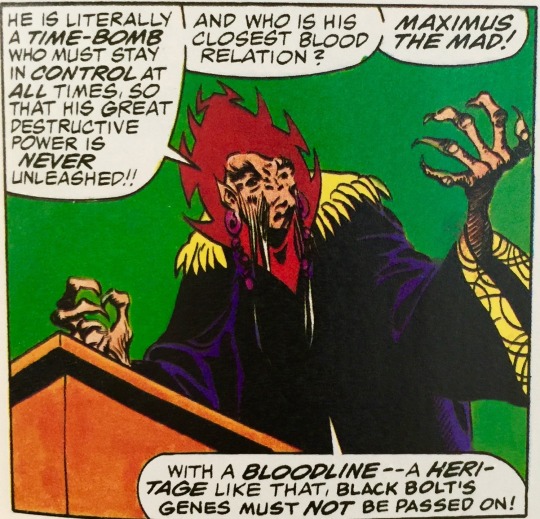
All of its melodrama notwithstanding, By Right of Birth chooses not to answer many of the overarching questions that the story posses. Medusa and Black Bolt’s son is not named and no indication is offer as to whether or not he will grow up to actually pose a threat to Attilan.
Subsequent stories show that the son is named ‘Ahura.’ And while Ahura has indeed been a troubled youngster he has by no means represented the danger that the Genetic Council feared he would. Like his father, Ahura is an extremely powerful Inhuman, yet what has bedeviled him has not been his power, nor the madness that afflicts his uncle Maximus, rather it is has been the psychological trauma inflicted on him by being separated from his parents. The sadness and acting out this trauma evoked in Ahura was initially misidentified as a sign of more deeply seated psychopathology.

Fortunately, things eventually worked out for Ahura and he has enjoyed a somewhat more healthy young adulthood. Interestingly, the hardships that Ahura has endued has had nothing to do with his powers and genetic heritage and everything to do with the fear of what he might have become.
A brave, unflinching and unapologetic tale as well as a wild, hugely enjoyable ride. Highest possible recommendation for Inhuman fans and fans of the comic book medium in general. Five out of Five Lockjaws!

The Attilan Rising podcast reviewed this tale in greater depth. You can listen tot he podcast here.
8 notes
·
View notes
Text
Book Review Blog #2
I. Cover
JBLFMU Arevalo
Pirates of the Caribbean: the Price of Freedom
source: https://www.goodreads.com/book/show/4558004-pirates-of-the-
caribbean?ac=1&from_search=true
Marvin Louis P. Pueyo 11 Deck
II. About the Author and Book Background
Ann Carol Crispin (1950-2013) or commonly known as A. C. Crispin was an American science fiction writer, the author of over twenty published novels. She wrote professionally since 1983. She wrote several Star Trek and Star Wars novels, and created her own original science fiction series called Starbridge.
Crispin also served as Eastern Regional Director, and then Vice President, of the Science Fiction and Fantasy Writers of America. With Victoria Strauss, she founded Writer Beware, a "watchdog" group that is part of SFWA that warns aspiring writers about the dangers of scam agents, editors, and publishers. Writer Beware was founded in 1998, and has assisted law enforcement and civil authorities in tracking and shutting down writing scams.
She was married to science fiction author Michael Capobianco.
Crispin, who also wrote a prequel providing the back story for the popular Pirates of the Caribbean movie series, died on September 6th, 2013 at the Hospice of Charles County in Waldorf, aged 63.
Pirates of the Caribbean:The Price of Freedom was written by A.C. Crispin, an author known for creating fascinating "backstory" for media icons such as Han Solo (in The Han Solo Trilogy) and Mr. Spock's father, Sarek (in the novel of the same name). When an editor working for Disney was seeking an author to write a novel dealing with the backstory of Captain Jack Sparrow from the Pirates of the Caribbean film franchise, they contacted Crispin's agent and contracted her to write the book after reading The Han Solo Trilogy.According to A. C. Crispin, the original book she was contracted to write was the story of the initial quest to Isla de Muerta, where Hector Barbossa's mutiny occurred. But Disney changed its mind and told her to go further back in time. Despite this, Crispin had at least one full outline written for that book.[1]The idea of how Jack Sparrow became captain of the Black Pearl (formerly the Wicked Wench) was briefly mentioned in promotional material for the second Pirates film, Dead Man's Chest. However, only the part from Cutler Beckett giving Jack a pirate brand as well as Jack's deal with Davy Jones was mentioned. The Price of Freedomexpanded that story to new heights.The original cover of the book was intended to have Jack Sparrow on the helm of a ship, but the current generic ship was decidedly used as the cover purportedly because Johnny Depp did not want his likeness to be used. (source: Goodreads.com, wikia.com)
III. Summary
Twenty-five-year-old Jack Sparrow is a clean-cut merchant seaman pursuing a legitimate career as a first mate for the East India Trading Company. He sometimes thinks back to his boyhood pirating days, but he doesn’t miss Teague’s scrutiny or the constant threat of the noose. Besides, he doesn’t have much choice - he broke the Code when he freed a friend who had been accused of rogue piracy, and he can no longer show his face in Shipwreck Cove.
When Jack’s ship is attacked by pirates and his captain dies in the altercation, he suddenly finds himself in command. The wily sailor’s skillful negotiations with the pirate captain—who turns out to be a woman from his past—result in a favorable outcome that puts Jack in line for an official promotion.
After making port in Africa, Jack is summoned by Cutler Beckett, who makes him captain of a ship called the Wicked Wench. Beckett gives Jack an assignment. He has heard a legend about a magical island named Zerzura whose labyrinthine bowels are said to contain a glorious treasure. Beckett suspects that one of his house slaves, a girl named Ayisha, is from Zerzura. He asks Jack to take her along on his voyage and seduce her into divulging the island’s whereabouts. In payment for his services, Beckett promises Jack a share of the treasure.
But this task isn’t as easy as Jack initially believes. Before she agrees to reveal the location of her home, Ayisha insists that Jack take her to the New World to rescue her brother, who has been sold into slavery in the Bahamas. Their voyage is long and arduous, and as they weather a vicious storm and a surprise attack from an old pirate foe, Jack grows to respect and admire Ayisha’s bravery. He knows that Beckett intends to enslave her people after robbing them of their treasure, and Jack’s moral compass revolts at the idea. It might be possible to deliver Ayisha safely to Zerzura, obtain some of the treasure, and convince Beckett that he never found it... but the greedy E.I.T.C. official has eyes everywhere, and if he learns that Jack has foiled his plans, he could take away the thing that Captain Sparrow loves most: his ship—and his freedom.
IV. Lessons learned
Don't take other people's treasure. Once it doesn’t belong to you you should not take possession any of it. Pirates are not all bad. Even pirates do good things and even help others in the high seas. A good decision can be a wrong decision if made for the wrong reasons. and you will suffer the consequences from doing such decisions. Why fight when you can negotiate? Talk is the best thing to settle everything just like what Jack Sparrow does. But he more often choose to escape in a fight. Sometimes the only way for a pirate to make a living is by betraying other pirates. pirates don’t only live against the government it could possibly be their opposing pirates. Trying to be selfish may cost you. Big time comebacks of the bad things on you might come in time when you never expect them.
V. Review
Gr 7 Up—First mate Jack Sparrow, 25, forsakes the honest life of a merchant seaman to become a pirate. Crispin weaves a detailed fantasy backstory of his adventures as a (usually) dedicated employee of the East India Trading Company in the 1700s. Jack treats men well, delights in strong women, and is true to his word. The beginning pages tell of a "lost city" shrouded by fog, invisible to sailors, and the home of a vast treasure of gold. When a pirate attack results in the death of the captain, Jack Sparrow, with his trademark swagger and dandified dress, takes over and finds himself dealing with Cutler Beckett, an ambitious executive of the EITC. Jack promises to help find the hidden island for a substantial cut of the gold, and it is this search that drives much of the story. There is plenty of drinking and wenching interrupted by bouts of swordplay and rich descriptions of life at Shipwreck Cove. The action moves briskly along at most points, enriched by sophisticated vocabulary, for these pirates ingest rum, strut insouciantly, and rest above the futtock shrouds. Jack's moral compass is shown to be true when he frees a cargo hold of slaves, and as punishment finds his ship set ablaze and headed to the bottom of the ocean. A desperate appeal to Davy Jones resolves the issue (though it costs Jack his soul), and the book ends where the movies begin: with Captain Jack Sparrow at the helm of The Black Pearl. Sure to be popular.—Maggie Knapp, Trinity Valley School, Fort Worth, TX
critiques
“A fabulous read and gripping tale of the times and lives of pirates.. But not any pirate, but Captain Jack Sparrow. His being and reason of behavior are explained so that what we see in the movies of Pirates of The Carribean now make total sense. A wonderfully written and detailed novel that I fully recommend to one and all. Dr. Jamal.f” (source barnesandnoble.com)
VI.References
Goodreads.com
wikia.com
Wikipedia.com
google.com
barnesandnoble.com
0 notes
Text
Monday Music: Parekh & Singh / Wes Anderson & Colonial Legacy

A lovely, little group to stumble across as the summer nights linger a little longer than we deserve in the northern hemisphere and we have need of songs with which to further enjoy the lengthened twilights and unnamable oranges and pinks which play on clouds or air pollution, depending on your location.
youtube
The venn diagram of people who would enjoy Parekh & Singh and people who would enjoy quirky coming of age comedies with an OCD level of attention to whimsical detail and the meticulous direction of Wes Anderson, has a large overlap, as you can see in the chart below.

It is then a smart branding move of Parekh & Singh, with their perfectly pocket sized indie dream pop tunes to make music videos in tribute to Wes Anderson, the divisive, brilliant auteur, and favorite of the indie set.
I quite like this music. It’s good. But, what I find really interesting here, is thinking about Wes Anderson’s films and specifically the criticism he faces when it comes to his handling of minority and foreign characters, especially in the context of two Indian guys taking his work, which at times has indeed, been questionable, especially in its portrayel of Parekh & Singh’s fellow countrymen, and other south asians.
youtube
I’m an ardent W.A. fan, but I do not mind if people jump on Anderson for Gene Hackman’s character being openly (and hilariously) racist in Royal Tenenbaums or if they have a problem with Owen Wilson’s Custer obsessed, war paint donning character in the same film. In all honesty, the mention of the tongue-in-cheek “Chick-chaw” trail in Moonrise Kingdom always makes me cringe, even though I love that film. I appreciate when people are aware enough to point out uncomfortable moments of appropriation in his films and I do not make apologies for him. But, I personally don’t get too bent out of shape over that stuff when it pops up in movies, especially when I think that this director (white man, he may be) is smart enough and sensitive enough to be pointing out the problems of race in society through showing cartoon versions of racism. My argument would be that Anderson doesn’t get race right all the time, but he might actually be doing better work with it than we might have previously thought, given the knock that Wes Anderson and White are synonyms.
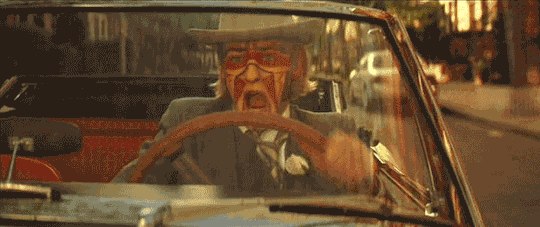
(Eli Cash high on mescaline wearing war paint, Royal Tenenbaums)
Take Royal Tenenbaums. Hackman’s character Royal is an admitted “asshole” after all and his racism is a part of that lost old white man-ness of his character. Eli Cash, Owen Wison’s character, and the other great offender within the ensemble cast, is a drug addicted sendup of white academics who get way to deep into the culture they “study,” and go totally off the rails, wearing funny hats and in Cash’s case, writing in a “sort of obsolete vernacular.” The one prominent black character in any of Anderson’s ensemble casts is Henry Sherman, played by Danny Glover. Sherman certainly is largely there as a target for Hackman’s racist comedy (”Coltrane,” “You want to talk some jive!? I’ll talk some jive!”) but Glover’s character is also successful accountant and ends up marrying Royal’s wife, played by Anjelica Houston, which obviously upends a lot of stereotypes of black folks in cinema.
youtube
(The great back and forth between Glover and Hackman, Royal Tenenbaums)
Thinking about it now, I actually think Royal’s racist moments, are not only for easy-ish laughs, but to also identify him as a man out of time, as a tragically flawed hero. In many ways, Royal Tenenbaums is a very American movie, about a family which chases innovation and prestige, dedicating itself to upholding a strong protestant work ethic, only to come up short despite all of their talent because in the end the world is hard and we are all broken to some degree, and all that really matters is love and tending your own garden, as Voltaire might say. The tragedy and triumph of F. Scott Fitzgerald’s writing and life sings throughout all of Anderson’s American set films (especially in RT and Rushmore, which was inspired by Fitzgerald’s “The Last Tycoon”).
What better sin to possess the patriarch of this dying star of an American family with than a kind of dwindling, last gasp of the white supremacy. Royal has to overcome many things in order to redeem himself by films end -- abandoning his family -- but he also must overcome a bigoted white machismo, as he finds himself outmatched not only by a changing, more progressive society, but also more directly by a strong, smart, and handsome black man, who has won the heart of his wife, because he is a better man than our hero could ever be.
Just because an issue is dark and complicated, doesn’t mean it can’t serve well in a colorful comedy--see the way Anderson also handles mental illness, anxiety and suicide in this film, in a way which doesn’t drag the proceedings into total despair, or interrupt the pace, or comedic stability of the overall work, but at the same time, does not treat these topics as inconsequential, but in fact addresses them with respect.
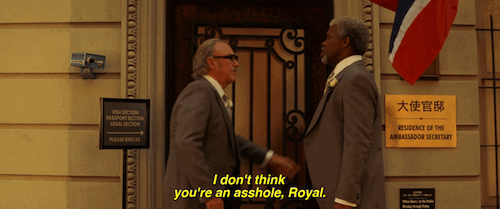
(Royal Tenenbaum and Henry Sherman making amends, Royal Tenenbaums)
In short, I think it’s fair to criticize Anderson. If you just don’t like his style, fair, his talent may not engulf you the way it does myself and other fans, and this certainly alters how we view his appropriation, or how he writes for characters of color. I get it. It’s fair to cry foul over a movie like Tarantino’s Django Unchained, and say, maybe, white film makers just shouldn’t put words into the mouths of black actors when explosive issues of race are involved. I can respect that because it comes from a position of historical knowledge in which, taking in the scope of slavery, anti-blackness, civil rights, and white supremacy, it’s almost too much to deal with, and honestly, who needs a white guy trying to write blackness onto the screen, especially when plenty of black filmmakers don’t get the same shot.
If you don’t like Anderson’s precious, meticulous aesthetic (or Tarantino’s over the topness, for that matter), which I can understand, his inclusion of minorities and foreigners (which he has made a space for since his first film) is an easy target. But I think it’s worthwhile to consider this: W.A. is a white dude writing racially charged dialogues and characters, but what is that dialogue and what are those characters doing?
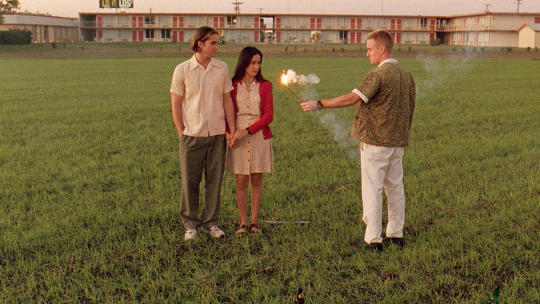
(Anthony, Inez, and Dignan from Bottle Rocket)
I met Wes once, at an NPR office of all places, and so I picture his tired but kind, press tour handshake and smile, when I think of him as I write this. He wears his influences on his sleeve. A white, liberal boy from Texas with a hard on for 60s European cinema and British folk/rock music, who is a nice guy in an expensive camel hair blazer. A soft voiced auteur who seems both normal and a bit snobby, with a singular vision within filmmaking.
Still, I can sympathize with those critics who call him out, and I don’t necessarily disagree with their points. It’s important to have watchdogs out there to not let people get away with shit concerning race, because some really serious, bad stuff can go down if marginalization is the norm, like life or death stuff, not just annoyances from silly movies. Although, I do feel bad for these critics if they haven’t experienced the brilliance of Rushmore, the first movie I remember sitting down and watching and afterwards, coming out of the theater, telling my buddies Josh and Phillip, whoa, that was like a really good film.
youtube
(”Payback Scene” from Rushmore, featuring The Who’s “A Quick One While He’s Away”
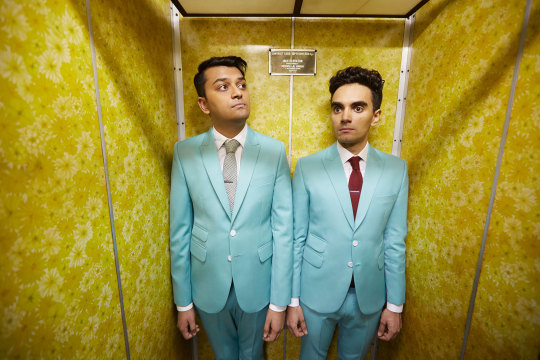
So, back to Parekh & Singh... Two private school kids from Kolkata who do the indie dream pop thing as well as anyone in the states or Britain, with no trace of an accent. Obviously, British colonialism has left a trace on these guys. Is that a bad thing? Well, I sure like this music, and judging from their pin-point accuracy in performing this style, they sure like British music and have studied the great indie pop of the 90s and 00s from the isles and stateside. And what does their adoption of the Anderson aesthetic in their promotional videos and photographs say? Well, obviously, like many indie pop fans, they enjoy his films. It’s an eye catching visual to replicate and it got my attention, as I would imagine it got many of the hundreds of thousands of people who have viewed their videos’ attention.
The intrigue arrives when we consider that Anderson’s least successful film, both as a film and a cultural product handling race, is Darjeeling Limited. It’s his most exploitative work by a mile, setting a story of three rich white brothers (played by Jason Schwartzman, Owen Wilson, and Adrian Brody) on a farce of a spiritual journey to reconnect with their nun-mother who is living somewhere in India. They travel by train and India, like classic films from the 50s and 60s, stands in for the “exotic” locale where rich white people find out something.
youtube
(Darjeeling Limited trailer)
There are two supporting actors of south asian descent on the train --which serves brilliantly from a cinematography point of view as the main setting-- played by Amara Karan and Waris Ahluwalia, but they have little more complexity than the colored folks in a Tin Tin comic, that is to say not much (that is to also say, I cherish my Tin Tin comics, even Le Lotus Bleu.)

(Amara Karan plays “Rita” in Darjeeling Limited)
The criticism of Anderson, privileged, white boy director, is most founded here. The movie--rewatching some scenes, now--still has a ton of great moments, though the script is more uneven than his best work (especially the films cowritten by Owen Wilson) and the chemistry between the leads is not great. But when it comes to his treatment of India, there are a number of head shaking moments to choose falling into the cliches of bad, racist costuming, cultural mishandling (especially in terms of religion), exoticization of "oriental” women, white savior complexes, and the fact that the country is little more than literal window dressing from the inside of a train, a liminal but safe compartment from which these three western brothers bicker like children and try to find meaning while taking drugs, fucking hot chicks, and being tourists playing at the Beatles-y spirituality which so many westerners define India by. So, criticism deserved on this one, I say. It’s one thing when W.A.’s setting is Brooklyn or a prep school, because Anderson has some ownership over this cultural context. He has very little ownership over India. He took a trip there, enjoys Bollywood, but the conflation of the country and the superficiality with which he treats it, especially given how necessarily superficial and visually focused his movies are, that’s a little bit of a deal.
Still, some great scenes, amazing shots, great use of The Kinks, and funny lines.

(Brody, Wilson, and Schwartzmen in Darjeeling Limited)
So, the question I would love answered is what do Parekh & Singh think, as Indian dudes who love Wes Anderson about Darjeeling Limited. They probably love it, the same way, as an east/southeast asian dude, I really like Karate Kid or don’t actually mind Last Samurai, because 1.) Tom Cruise is fucking awesome always (in movies) and 2.) it’s a fucking movie and my outrage is better spent elsewhere. But, perhaps there’s something more annoying about Anderson’s missteps in Darjeeling than those hollywood blockbusters precisely because Anderson wears a camel hair blazer to an NPR interview with Robin Young. Artsy, bookish liberals are supposed to know better where big hollywood productions don’t give a shit about race sensitivity and just want to make money, so, duh, Tom Cruise totally should be the centerpiece of a movie that takes place in Japan. Still, I’m curious what Parekh and Singh would think (I’ve also texted several south asian friends on their Darjeeling feelings, realizing I’ve never asked).
Anderson’s aesthetic is highly colonial. He loves the prim and proper style of the British Empire, the bright colors of the military uniforms, and the organization inherit in Britain’s grotesque domination of much of the world in the 19th and 20th century.

(British Colonial style)
Musically, Anderson’s heavy use of 1960s British music is interesting because it came at a pivotal time in British and western history. It was the soundtrack of a dying Empire and an emerging globalized (American) world. I ask myself, was the British Invasion with all of its appropriation (Rolling Stones=Blues, then country, Kinks=Rock, Hillbilly) the swan song of an empire or a the sonic marking of a sea change towards a more progressive society?

(The Kinks)
Concerning film, Anderson borrows heavily from French New Wave cinema and classic Italian masters, and we must ask, similarly to his British Invasion admiration/fetish, is this a continuation of brilliant but white-washed and colonial film making in the guise of mid century cultural change within these respective western european countries, or was this film making truly pushing towards a more culturally inclusive and aware future?

(Seberg et Belmondo, A Bout de Souffle (Breathless))
So, again, Parekh & Singh: Sons of colonial subjects taking the culture of their former conquerers and making their own music, or subjects of a continued colonial legacy? Probably both. Having grown up Vietnamese, but fully appreciating the French culture my mother was born into in Saigon, I don’t think it’s such an easy thing to demarcate. French culture is my culture, even if, I think French colonialism was bullshit, horrible, and wrong. British culture is Indian culture for some Indians, probably moreso of upper class kids like Parekh and Singh, and their private school crowd. No judgement on any individual actors. By looking at their work, as well as Anderson’s we can take a minute to reflect on the deeply engrained transnational, colonial influences, and the good and bad of this legacy in art, and in the world.
At the end of the day, this is talented group making good tunes and using a popular director’s style to promote their music, and I’m fine leaving it there. As an academic-ish, I do appreciate their videos for making me think more deeply about Anderson’s work and history, I guess.
Also, I want to mention, that, after Darjeeling Limited and the ultra-white, school boy fantasy Moonrise Kingdom (a great film, despite the “Chick-chaw trail), I really loved Anderson’s next film Grand Budapest Hotel featured Tony Revolori, a Guatemalan-American actor as the film’s hero. I’m sure Parekh & Singh, like myself, appreciated seeing a brown skin kid as their hero, especially in what was perhaps Anderson’s best work to date.

(Tony Revolori as Zero in Grand Budapest Hotel)
0 notes